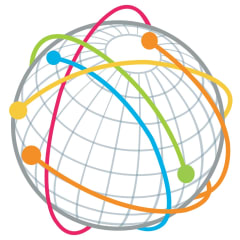Graphic designers can benefit from learning and utilizing certain coding languages to enhance their skills and expand their capabilities. Here are some useful coding languages commonly used by graphic designers:
- HTML (Hypertext Markup Language): HTML is the backbone of the web and is essential for creating the structure and content of web pages. Understanding HTML allows graphic designers to have more control over the layout and formatting of their designs when working on websites or digital projects.
- CSS (Cascading Style Sheets): CSS works alongside HTML to define the visual appearance and layout of web pages. Graphic designers who are familiar with CSS can apply styles, such as colors, fonts, spacing, and animations, to their HTML elements, resulting in more visually appealing and interactive designs.
- JavaScript: JavaScript is a programming language that enables interactivity and dynamic behavior on websites. Graphic designers can use JavaScript to create interactive elements, such as image sliders, pop-up modals, and animated effects, adding an extra layer of engagement to their designs.
- SVG (Scalable Vector Graphics): SVG is an XML-based vector image format that allows for sharp and scalable graphics on the web. Graphic designers who are proficient in SVG can create resolution-independent graphics, icons, and illustrations that can be easily customized and scaled without losing quality.
- Processing: Processing is a programming language and development environment specifically designed for visual artists and designers. It simplifies the creation of interactive visuals, animations, and generative artwork. Processing provides a creative coding platform for designers to experiment and create unique digital experiences.
- Python: Python is a versatile programming language that can be used for various purposes, including automation, data visualization, and prototyping. Graphic designers can leverage Python libraries, such as PIL (Python Imaging Library) or matplotlib, to manipulate images, generate visual assets, or process data for design projects.
- SQL (Structured Query Language): SQL is a language used to manage and manipulate databases. Knowledge of SQL can be valuable for graphic designers working on projects that involve data-driven designs, such as infographics, data visualizations, or interactive dashboards.
- Swift or Kotlin: Swift (for iOS) and Kotlin (for Android) are programming languages used for mobile app development. Graphic designers interested in creating their own mobile apps or collaborating with developers can benefit from understanding the fundamentals of these languages.
While graphic designers may not need to be proficient in all these coding languages, having a basic understanding of HTML, CSS, and JavaScript can significantly enhance their ability to create engaging and interactive digital designs. Expanding knowledge into other languages further expands their skill set and opens up new opportunities for creative expression.
Related Careers

Incident Responder
An incident responder is a cyber security professional responsible for identifying, investigating, and mitigating security incidents within an organization.

Cryptanalyst
A cryptanalyst is a specialist in the field of cryptography who focuses on analyzing cryptographic systems and breaking codes to decipher encrypted information.

CISO
A Chief Information Security Officer (CISO) is a senior executive responsible for managing and overseeing an organization's information security program.

Security Software Developer
A security software developer is responsible for designing and developing software applications with a strong focus on security.

Cryptographer
A cryptographer specializes in the field of cryptography, which involves the study and practice of secure communication and data protection.

Security Architect
A security architect is a cybersecurity professional responsible for designing and implementing secure systems, networks, and applications to protect an organization's digital assets from cyber threats and attacks.

Penetration Tester
A penetration tester evaluates the security of computer systems, networks, and applications by simulating real-world attacks.

Information Security Director
An information security director is responsible for leading and overseeing the information security function within an organization.

Digital Forensics Analyst
Digital forensics analysts investigate and analyze digital evidence to uncover information related to cybercrime, data breaches, or other digital incidents.

Red Teamer
A red teamer specializes in conducting adversarial simulations and assessments of an organization's security measures, with the goal of identifying vulnerabilities and weaknesses.

Blue Teamer
Blue teamers are cybersecurity professionals who specialize in defensive security measures and strategies.

SOC Manager
A Security Operations Center (SOC) manager is responsible for overseeing the day-to-day operations and strategic direction of a SOC.

Security Engineer
A security engineer is responsible for safeguarding an organization's information technology infrastructure and data from potential threats, vulnerabilities, and cyberattacks.

Ethical Hacker
An ethical hacker is a cybersecurity professional who is hired by an organization to identify and fix vulnerabilities in their computer systems, networks, and applications.

Information Security Analyst
An information security analyst is responsible for safeguarding an organization's computer systems and networks against cyber threats and unauthorized access.

Cybercrime Investigator
A cybercrime investigator is responsible for investigating and combating cybercrimes.

Information Security Manager
An information security manager is responsible for overseeing and managing the information security program within an organization.

IT Security Consultant
An IT security consultant provides expert advice and guidance on information technology security matters to organizations.

